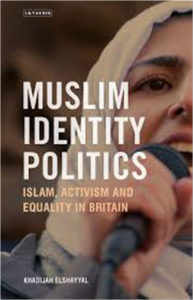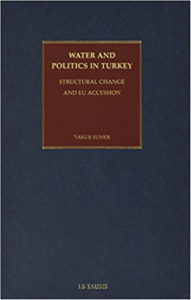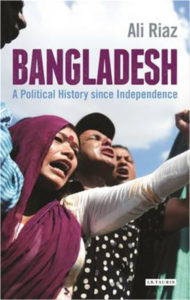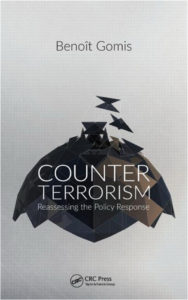
Muslim Identity Politics: Islam, Activism and Equality in Britain
Khadijah Elshayyal
I.B. Tauris (2018)
Price: Rs13,741
The surge in divisive and far-right politics and growing Islamophobia in Britain pose new challenges for Muslim advocacy organisations. British Muslim activism has taken centre stage in the public sphere as a result. Yet for over fifty years Muslim advocacy groups have worked to preserve religious identity, lobby the state and provide concerted responses to the political establishment.
This is the first book to chart critically the national and global factors influencing the political mobilisation of British Muslim activists as Muslims. Khadijah Elshayyal traces the changes of thought, direction and method within Muslim identity politics after 1960, noting key organisations and turning points such as the Rushdie Affair, the 9/11 attacks, the 7/7 bombings and the current conflict in Syria. The book argues that the Rushdie Affair prompted new debate around the subject of freedom of expression, which has continued to be a point of contention ever since. Providing a history of the interaction between Muslim advocacy groups and the state, and the impact of state policy on Muslim communities, Muslims Identity Politics shows that that Muslim citizens continue to experience an `equality gap’ and recommends where transformation and progress can be made. Based on primary sources and in-depth interviews, this book is a vital resource for government officials, policy-makers and researchers interested in multiculturalism, Islamophobia and security issues in Britain.
Khadijah Elshayyal is Postdoctoral Research Fellow at Edinburgh University’s Alwaleed Centre for the Study of Islam in the Contemporary World, where she also teaches courses on Islam and Muslims in Britain at undergraduate and postgraduate levels. She holds a PhD in History from Royal Holloway, University of London, and her research interests lie in the representation, political and cultural engagement of Muslims and ethnic minorities in the UK.

Water and Politics in Turkey: Structural Change and EU Accession
Vakur Sumer
I.B. Tauris (2016)
Price: Rs12,642
The Water Framework Directive of the European Union is the centrepiece legislation for the management of European waters. It is regarded by many as the most significant piece of European environmental legislation ever introduced and it demands a fundamental change in the way that water resources planning and management is understood. As Turkey approaches EU membership it faces the challenge of implementing the requirements of the WFD by the date of its accession to the union, something that will require major structural change and financial investment.
Water and Politics in Turkey provides a comprehensive, detailed, and authoritative examination of all aspects water management and water resources in Turkey. This comes from the evaluation of existing institutions and practices to assessing the difficulties inherent in the enormous changes that must be implemented as Turkey prepares for EU membership. It will be essential reading for water professionals, policy makers, environmentalists, and all those with an interest in Turkey within the workings of the European Union.
Vakur Sumer is an assistant professor in the Department of International Relations at Selcuk University, Konya, Turkey. He has been a Visiting Fellow at the University of California, Davis and at the Max Planck Institute, Heidelburg, Germany. He is the author of Environment and Politics in Turkey (I.B.Tauris, forthcoming).

Britain and Arab Unity: A Documentary History from the Treaty of Versailles to the End of World War 2
Younan Labib Rizk
I.B. Tauris (2009)
Price: Rs11,726
British attitudes towards Arab unity have frequently been a source of controversy. Younan Labib Rizk here provides a coherent Arab perspective derived from considerable in-depth research into British archives, covering the period 1919 to 1945. His analysis reveals how British government policy was formed in this period and concludes that repeated British administrations were consistent in their concern and hostility towards the notion of Arab unity. While this conforms with traditional Arab views of British policy in the Levant and the Arabian Peninsula, the importance of Rizk’s work lies in his meticulous research through which he is able to document British attitudes and motivations. As he quotes the internal correspondence between departments and individual officials in the Foreign Office and its Eastern Department, the Colonial Office and several British Cabinets, Rizk shows that divisions within the Arab world - of which there were plenty - were nurtured by British officials, only eventually to acquire their own dynamic. This book enhances our understanding of how the international politics of the region evolved during a critical phase in the modern history of the Middle East.
Younan Labib Rizk was Professor of History at Ain Shams University in Cairo and Director of Historical Studies at the Institute of Research and Arab Studies. He was also a respected commentator on the contemporary Arab world with a regular column in Al Ahram.

Bangladesh: A Political History Since Independence
Ali Riaz
I.B. Tauris (2016)
Price: Rs12,642
Bangladesh is a country of paradoxes. The eighth most populous country of the world, it has attracted considerable attention from the international media and western policy-makers in recent years, often for the wrong reasons: corruption, natural disasters caused by its precarious geographical location, and volatile political situations with several military coups, following its independence from Pakistan in 1971. Institutional corruption, growing religious intolerance and Islamist militancy have reflected the weakness of the state and undermined its capacity. Yet the country has demonstrated significant economic potential and has achieved successes in areas such as female education, population control and reductions in child mortality. Ali Riaz here examines the political processes which engendered these paradoxical tendencies, taking into account the problems of democratization and the effects this has had, and will continue to have, in the wider South Asian region. This comprehensive and unique overview of political and historical developments in Bangladesh since 1971 will provide essential reading for observers of Bangladesh and South Asia.
Ali Riaz is Professor and Chair of Department of Politics and Government at Illinois State University. He has previously taught at Dhaka University, the University of Lincoln and Claflin University, South Carolina and worked as a broadcast journalist at the BBC World Service in London. He holds a Ph.D. in Political Science from the University of Hawai’i.

Counterterrorism: Reassessing the Policy Response
Benoît Gomis
CRC Press (2015)
Price: Rs8,243
This book promotes a more nuanced understanding of the effectiveness of current counterterrorism practices and the need for reform. It challenges government, media, and academic accounts that exaggerate terrorist threats, particularly in comparison to other threats such as organized crime. Author Benoît Gomis responds to the problem of overreaction with guidelines that address terrorism as a problem to be managed rather than as an existential threat that can be eradicated. He proposes a more realistic assessment of the threat from terrorism, domestic or international, by relating terrorism to broader security, social, and political contexts.
The book examines current issues in counterterrorism, including the opportunity costs of counterterrorism policies, their psychological impact, the role of the media and experts, and the risks associated with oversimplifying the challenges posed by terrorism. It also explores less prominent areas of terrorism studies such as right-wing extremism, links between terrorism and organized crime, and citizen privacy.
Case studies illustrate each chapter, with some detailing differences in counterterrorist policy between countries. The studies focus on Western countries, particularly the United States, the United Kingdom, and France. The book also highlights the responsibility of nongovernmental actors in analyzing the threat and informing policies.
Counterterrorism: Reassessing the Policy Response is a timely commentary on contemporary developments in counterterrorist policy and practice, including drones, social media, and recent revelations on intelligence programs. It identifies potential dangers in technology and measures that can be taken to minimize them. More importantly, it provides guidance on how current policy can be reformed to assume a more objective, measured, and effective approach against terrorism.
Benoît Gomis is an international security analyst focusing on terrorism and organized crime. He is a research associate at Simon Fraser University, where he currently focuses on the illicit tobacco trade in Latin America and the Caribbean, and an independent consultant.

